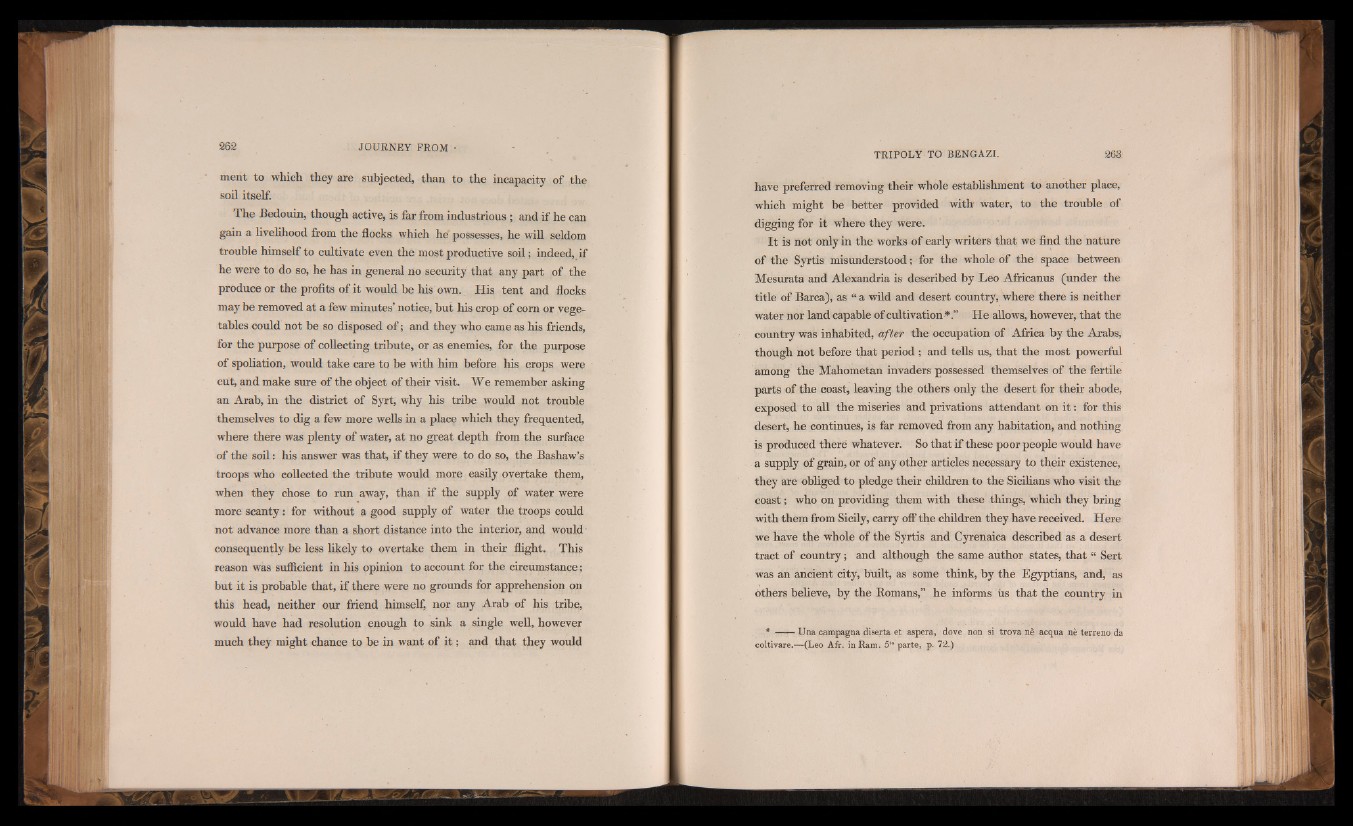
ment to which they are subjected, than to the incapacity of the
soil itself.
The Bedouin, though active, is far from industrious; and if he can
gain a livelihood from the flocks which he" possesses, he will seldom
trouble himself to cultivate even the most productive soil; indeed, if
he were to do so, he has in general no security that any part of the
produce or the profits of it would be his own. His tent and flocks
may be removed at a few minutes’ notice, but his crop of corn or vegetables
could not be so disposed o f; and they who came as his friends,
for the purpose of collecting tribute, or as enemies, for the purpose
of spoliation, would take care to be with him before his crops were
cut, and make sure of the object of their visit. We remember asking
an Arab, in the district of Syrt, why his tribe would not trouble
themselves to dig a few more wells in a place which they frequented,
where there was plenty of water, at no great depth from the surface
of the soil: his answer was that, if they were to do so, the Bashaw’s
troops who collected the tribute would more easily overtake them,
when they chose to run away, than if the supply of water were
more scanty: for without a good supply of water the troops could
not advance more than a short distance into the interior, and would'
consequently be less likely to overtake them in their flight. This
reason was sufficient in his opinion to account for the circumstance;
but it is probable that, if there were no grounds for apprehension on
this head, neither our friend himself, nor any Arab of his tribe,
would have had resolution enough to sink a single well, however
much they might chance to be in want of i t ; and that they would
have preferred removing their whole establishment to another place,
which might be better provided with' water, to the trouble of
digging for it where they were.
I t is not only in the works of early writers that we find the nature
of the Syrtis misunderstood; for the whole of the space between
Mesurata and Alexandria is described by Leo Africanus (under the
title of Barca), as “ a wild and desert country, where there is neither
water nor land capable of cultivation He allows, however, that the
country was inhabited, after the occupation of Africa by the Arabs,
though not before that period ; and tells us, that the most powerful
among the Mahometan invaders possessed themselves of the fertile
parts of the coast, leaving the others only the desert for their abode,
exposed to all the miseries and privations attendant on i t : for this
desert, he continues, is far removed from any habitation, and nothing
is produced there whatever. So that if these poor people would have
a supply of grain, or of any other articles necessary to their existence,
they are obliged to pledge their children to the Sicilians who visit the
coast; who on providing them with these things, which they bring
with them from Sicily, carry off the children they have received. Here
we have the whole of the Syrtis and Cyrenaica described as a desert
tract of country; and although the same author states, that “ Sert
was an ancient city, built, as some think, by the Egyptians, and, as
others believe, by the Eomans,” he informs iis that the country in
* Una campagna diserta et aspera, dove non si trova né acqua né terreno da
coltivare.—(Leo Afr. in Ram. 5ta parte, p. 72.)